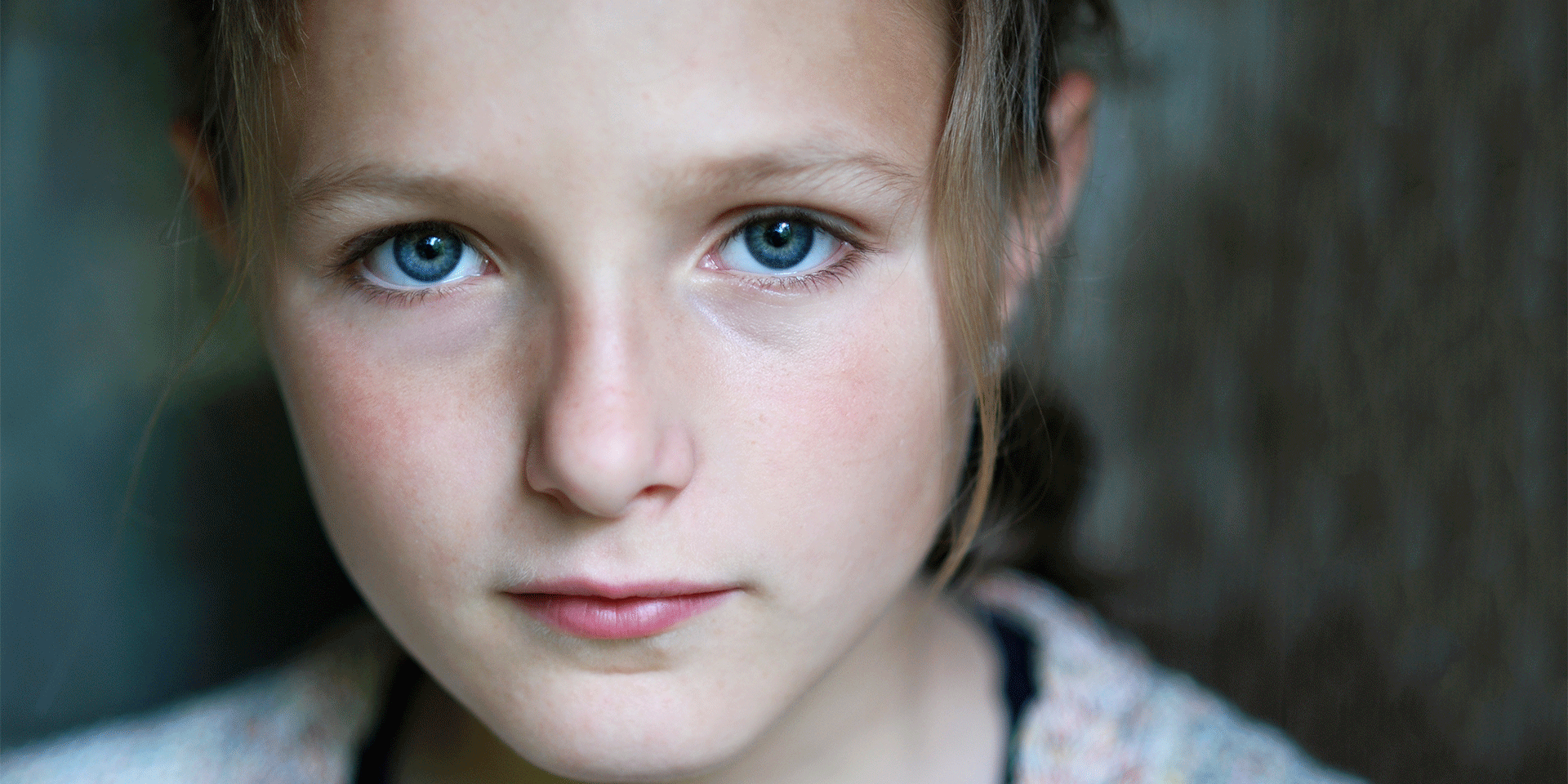When it was close, when I first saw its truly hideous face, I realised that I would never get used to it. And, no matter how hard I tried, no matter how much hope I tried to gather, I found nothing bright or inspiring about death. I know I will never find such a brightness, because it doesn’t exist. But I saw the light that it left behind it, and no matter how pale this light is, I consider it a miracle, and one of the most powerful forces that unites and transforms lives.
Maria is one of the most lively children I have ever met. Her laughter can be heard from afar—as can her screams if she is upset. Sometimes I get the impression that everything in her has the potential to go to the extremes. None of us, as her teachers, wanted to see the extreme way in which she cries, without being able to stop it. During a class when they learned a song about mothers, although she tried to refrain, Maria began to cry, to the amazement and then regret of the teacher who did not know about her tragedy. Maria and her siblings had only been orphans for a few months, and that song was far too much for her.
A year and a half later, we were all sitting in the office and staring blankly. We didn’t know what to do with the latest news, because it was too hard for us to take. Maria’s grandfather, who had been caring for the children since their mother died, the closest relative who could take care of them, had died in the hospital where he had been taken a few days prior. The family had asked us to give Maria the news. We waited until the end of the school day, then the principal told her. I couldn’t go with the few teachers who went to comfort her, but her reaction was heard throughout the school. We wanted so much to be able to ease her suffering, but we were all powerless. And I knew that all the pain our helplessness caused us was much less than the pain Maria felt for all her losses.
A few weeks ago, I watched Maria playing heartily in the school yard, and felt grateful for all those moments when the past disappears from her mind. When pain returns, I see her friends mobilise to help her, to help her forget, and to get her to enjoy playing with them. A few adults who barely know her have formed a support group, and they make sure she takes part in trips and gets some of her wishes. Maria still laughs with her infectious laugh, is still volcanic in her anger, but empathetic and ready to ease the suffering of others. She has become more ambitious at school, and has friends who help her succeed. She sometimes looks at you with the eyes of an adult who has seen too much, but is still enjoying her childhood. When you look at her, you can’t help but admire her, because her lust for life is stronger than the suffering of death.
I met Ana in her last year of middle school. She was older than her classmates, had gone abroad with her family for a year, and returned. She was distinguished from the others by the ambition with which she studied, although she was not the best among her peers. I admired her calmness and the sweet smile she displayed when the other learners teased her. When I organised a visit to the high school she would have liked to attend, Ana was the first to complete the list with her wishes. I then discussed what she wanted to do in the future, and I told her that she had the potential for much more than she envisioned. I saw from the astonishment with which she listened to my praise that she had not received much of this over time.
In our last class together, I was upset that she hadn’t done a project, the deadline for which I had already extended. When I told her I had to give her a bad grade, she just smiled at me with her calm smile. She then searched the notebook and found the project, which was meticulously written, but she had forgotten about it. She received the best grade for it, but I didn’t think she enjoyed the grade as much as the fact that I hadn’t changed my opinion of her.
In the evening, when I got home, one of the students told me that a car well above the legal speed had hit Ana, who had crossed the road without being careful. For one week we all hoped that Ana would recover from her coma, but she died. All the students in the school rallied together to raise a large amount of money to pay for hospital fees, and later for the funeral. I saw students who stayed with her family all the time to help and who made sure as many of us as possible went on to support the family. We saw them united and involved, although none of us wanted to see them united by a situation like that.
So many feelings were mixing inside me then, and I think only death can ravage us like that. Our last conversation became much more important than I had imagined at the time, and the thought that it might have been a discussion centered on her disappointing me, for such an insignificant reason, overwhelmed me. How different I would have wanted everything to be if I had known it was the last time we saw each other! I had heard so many times that it is good to talk to someone as you would if you knew you were seeing them for the last time. When I first heard them, were just empty words to me. Ana’s death has given them a strong meaning, and so far it is the only light I can take from her death.
Andreea Irimia teaches computer science and technological education.



















